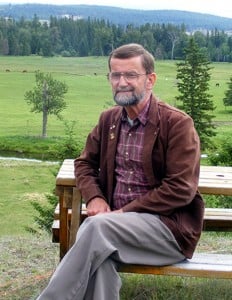Home »

Climate change debate heats up in elections
 “Perceptions,” by Gerry Warner
“Perceptions,” by Gerry Warner
Op-Ed Commentary
As if the climate change debate isn’t hot enough already a just released scientific report indicates our planet is going to get a lot hotter. Too hot for human beings to survive and most other living things too. And it’s happening faster than most people think.
The report released last week in the journal Science, and covered by the Washington Post, goes back almost 500,000 years when the Earth’s average surface temperature was 36 C, far higher than the 14.98 C the planet hit last year. The report is further reason for concern about modern climate change, said Emily Judd, a researcher at the University of Arizona and the Smithsonian specializing in ancient climates and the lead author of the study.
A timeline generated by the report says Earth has experienced at least five mass extinctions triggered by rapid climate changes that killed almost all species of life on our planet including the asteroid strike that killed the dinosaurs.
“We know that these catastrophic events … shift the landscape of what life looks like,” Judd said. “When the environment warms that fast, animals and plants can’t keep pace with it.” Nor can people.
Hurricane Helene is ample proof of this with the death toll now standing at more than 200 and expected to rise much higher after the monster storm smashed its way ashore in Florida destroying almost everything in its path. “This is the dawn of the Superstorm Era,” said a headline in Time Magazine pointing out that with ocean temperatures rising above 38 C (100 F) on Florida’s east coast more devastating storms can be expected.
“As ocean and air temperatures spike, extreme weather is growing more intense than ever before.” Hundred-degree water is fine in a jacuzzi but ocean scale temperatures like this can create a climatic calamity.
Judd and her colleagues base their findings on carbon saturated air they found trapped in seashells. The temperatures inside the shells were much higher than today’s shells but also much colder at different points in the 485-million-year timeline examined in the study. But what really got the scientists excited is the speed with which the air temperatures changed and the amount of carbon in the shells’ air supply.
At no point in the nearly half-billion years the data was analyzed did the Earth’s climate change as fast as it is changing now, Judd said. “In the same way as a massive asteroid hitting the Earth, what we’re doing now is unprecedented.”
The largest mass extinction happened 250 million years ago, when gases from volcanic eruptions – including CO₂ – raised Earth’s temperature by more than 10 C in the span of 50,000 years, a blink of the eye in geologic time. “In the same way as a massive asteroid hitting the Earth, what we’re doing now is unprecedented,” Judd said.
Despite this, and with two critical elections coming soon, not every politician is showing concern.
Speaking last week at a rally in Erie, Pennsylvania, former US President Donald Trump said: “I haven’t heard the environmental stuff mentioned in six months… so what the hell happened to the environment?”
Meanwhile his opponent Vice President Kamala Harris showed she hasn’t forgotten the environment. “One of the fundamental freedoms” at stake in the election includes, “the freedom to breathe clean air and drink clean water and live free from the pollution that fuels the climate crisis,” she said, speaking at the Democratic Convention last week.
So will the final election result be “drill baby drill,” as Trump has often said or will it be the “the freedom to breathe clean air . . .” as Harris says. We’ll soon know.
– Gerry Warner is a retired journalist and would be climatologist.







